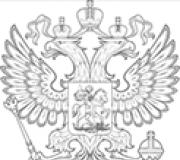Famous watercolor artists. Art therapy
Watercolor is considered one of the most capricious and temperamental paints, despite its simplicity and transparency. Children begin to master drawing with watercolors, but how many people know how great the power of this harmless paint really is?
Brief history: the beginning of development
The best watercolor painters in the world were able to create their masterpieces thanks to China, where, after the invention of paper, which happened in the 2nd century AD. e., watercolor technique received the opportunity to develop.
In Europe, the first beginnings appeared in the countries of Italy and Spain, when paper products appeared there (XII-XIII centuries).
Watercolor art came into use later than other types of painting. One of the most famous first works, considered exemplary, was the painting “The Hare” by the best watercolor painter of the world of the Renaissance, Albrecht Durer in 1502.
Then the artists Giovanni Castiglione and Anthony van Dyck began to study the watercolor technique, but examples of works in a similar technique continued to remain at a single level - a fact that Montaber confirmed in his treatise on painting. When mentioning watercolor, he did not go into detail, since he believed that this technique did not deserve serious professional attention.
However, watercolor technique became necessary in scientific and military research, when archaeologists and geologists needed to capture the objects they were studying (animals, plants, nature in general), as well as create topographical and architectural diagrams.
Let's rise
In the 18th century, closer to the middle, the watercolor technique became entertainment in the circles of amateur painters. This event was influenced by the published notes of Gilpin William Sowry, in which he described the provinces of England.
Also by this time, the fashion for portrait miniatures had spread, which amateur artists began to dare to study using watercolor techniques.
The best watercolorists of the world of the 18th and 19th centuries
The real flowering of watercolor, which turned it into the main and significant example of painting in England, occurred at the moment when two artists, Thomas Guertin and Joseph Turner, put their talented hands to this work.
In 1804, thanks to Turner, an organization called the Society of Watercolor Painters was created.
Guertin's early works of landscape illustration were traditional in relation to the English school, but gradually he was able to develop a much broader and more ambitious romantic direction of landscape. Thomas began using watercolors for larger formats.

The second best watercolorist in the world, Joseph Turner, became the youngest artist to receive the status. He was able to create his own and therefore new type of landscape, with the help of which he was able to reveal his memories and feelings. Thus, Turner was able to enrich his armada of watercolor techniques.

Joseph also owes his famous name to the writer John Ruskin, who, with the help of his writings, was able to declare Turner the most significant artist of his era.
Merit
The activities of the two geniuses described above influenced the vision of art of such figures as
- landscape painters David Cox and Richard Banington;
- the world's best watercolorist and architect, Samuel Prout;
- still life professionals Samuel Parter, William Hunt, Miles Foster, John Lewis and girl Lucy Madox, as well as many others.
Watercolor in the United States
The heyday of watercolors in America occurred in the mid-19th century, when the best watercolorists in the world, such as Thomas Roman, Winslow Homer, Thomas Eakins and William Richards, were supporters of this type of painting.
- Thomas Roman's role was to help create Yellowstone National Park. At Cook's suggestion, Thomas agreed to participate in geological research work, traveling to the Yellowstone region. His drawings aroused great public interest, which resulted in the region being included in the list of national heritage parks.
- Winslow Homer was one of the founders of American realism painting. Managed to create his own art school. According to most experts, he was one of the best landscape watercolor painters in the world, who influenced the further (20th century) development of American painting.
- Thomas Eakins was also involved in the emergence of realism in painting along with the master Homer mentioned above. The artist was fascinated by the mechanism of the human body, which is why the theme of naked and semi-nude figures occupied a leading place in Eakins’s work. His works often depicted athletes, and even more precisely, rowers and wrestlers.
- William Richards' skill was expressed in a fairly accurate resemblance of the works to the photographs. He gained fame as a watercolor mountain landscape painter, and subsequently as a master of water paintings.
The best watercolorists of the world in France
The spread of watercolor art in France is associated with such names as Eugene Delacroix, Paul Delaroche, Henri Arpinier and the professional art satire Honore Daumier.
1. Eugene Delacroix is the head of the romanticism movement in European painting. He was elected to the Paris city council and awarded an honorary order. The first work to make his name known was the painting “Massacre at Chios,” depicting the horrors of the Greek War of Independence. Naturalism reached such mastery that critics accused his technique of even being overly natural.

2. Paul Delaroche is a painter who is a representative and member of the academic movement. At the age of 36, he was elected to the post of professor teaching at the School of Fine Arts in Paris. The large-scale work of his entire life is the work “Semicircle”, which included 75 brilliant artists of the past.
3. Henri Arpinier is considered one of the best watercolor painters of landscapes in France at that time. In addition to depicting nature, he worked in a portrait style. In his work you can often see drawings by children.
4. Honore Daumier was not only an artist, but also a graphic artist, sculptor, and caricature specialist. Once, for his work in “Gargantua,” the activist was sent to serve a prison sentence. He became famous for his cartoons on political, social and personal topics, depicting successful people in France of his time.

Watercolor masters in Russia
The founder and discoverer of Russian watercolor is considered to be Pyotr Fedorovich Sokolov, one of the best watercolor artists in the world. He was the progenitor of the Russian watercolor portrait, and was also one of the academicians of the Imperial Academy of Arts in St. Petersburg.

The blood brothers of the Bryullov family were also famous for their talent. Karl was a watercolorist, representing the movements of classicism and romanticism, and his older brother Alexander was not only an artist, but also an architect, who owned many St. Petersburg projects.
In 1887, the World of Art organization was formed, consisting of Ivan Bilibin and artist Anna Ostroumova-Lebedeva.
In the same year, the association “Society of Russian Watercolor Painters” began to operate, the first chairman of which was the above-mentioned Alexander Benois.
In the 20th century, the range of domestic artists expanded. Some of the best watercolor painters in the world from Russia are:
- Gerasimov Sergey;
- Zakharov Sergey;
- Tyrsa Nikolay;
- Vedernikov Alexander;
- Vereisky Georgy;
- Teterin Victor;
- Zubreeva Maria and many other talented figures.
Present tense
Nowadays, the watercolor technique has not lost its significance and its capabilities continue to be revealed by more and more new faces. There are many artists working on capricious and complex paint, below is a list of just some of the best watercolorists of our time.
1. Thomas Schaller is an artist and architect from America. Regarding watercolors, he admitted that he was in love with it for its ability to express the unique voice of the artist. The thematic preferences of the world's best watercolorist include architecture (city landscape) and, of course, images of nature.

2. Thierry Duval is an Italian watercolorist who has his own technique of applying paint, which allows him to depict details and the picture as a whole incredibly realistically.
3. Stanislaw Zoladz is a Polish artist specializing in hyperrealism. The work is interesting because the author excludes the presence of a person and only details (boats, houses on the horizon or abandoned buildings) remind of his existence.

4. Arush Votsmush is a domestic watercolorist from Sevastopol. He calls his work “the pure drug of creativity.”
5. Anna Armona is an artist from Ukraine. Her work is very bold, as she is a lover of colors and uses them very expressively.
6. Pavel Dmoch is another watercolorist from Poland. Depicts a real cityscape, integrating shadows and light with interiors, exteriors and architecture.
7. Joseph Zbukvic is a famous Australian artist. He compares his favorite paint to a wild horse, which will never be completely curbed. Closer to his heart are the themes of the sea, as well as the opposite - the city landscape.
Below is a photo of the world's best watercolorist with his work.

Imagine: he was able to create one of his incredible works using just one paint - instant coffee.
8. Mary White is an American artist who is one of the best portrait watercolorists in the world. Her paintings depict a variety of personalities: the elderly, children, African Americans, women, workers and others.
So, some time ago we had a conversation about the perception of paintings in isolation from the name of the artist, and everything that stands behind the name. You can read about the beginning here
Today I will tell you who is who.
The general conclusions from your comments and the survey of my friends are that the quality level of the film is immediately visible. Some madness or strangeness too, but very often people get confused, whether this is a sign of modern art, or simply something incomprehensible... It also turned out to be difficult to distinguish between a Russian, Chinese, and European artist. Only a few guessed correctly, and even then, mainly only because they recognized the authors of the paintings.
Watercolor No. 1
English artist - William Turner (1775-1851)
He is awesome.
Each of his paintings is worth tens of millions of pounds. Be sure to look at his watercolors, but not on the Internet, but preferably at least in paper reproductions
Watercolor No. 2
St. Petersburg watercolorist - Sergey Temerev.
His journal sergestus
I found it by accident when I was looking on LiveJournal for those who paint with watercolors. I really like his paintings - both seascapes and very unusual still lifes. I dream of attending a master class one day :)) 
Watercolor No. 3
Konstantin Kuzema. Contemporary St. Petersburg artist. 100 best watercolor painters in the world and all that :) They talk a lot about him now, especially those who are learning to draw.
A site where you can view other works or read useful articles about technology http://kuzema.my1.ru
But personally, I am deeply indifferent to his paintings. Doesn't touch anything. 
Watercolor No. 4
Author: Joseph Branko Zbukvic. Born in 1952 in Croatia. Later he moved to Australia.
One of the most recognized watercolorists in the world. His paintings and technique are simply amazing. You can write his name in Google or Yandex and enjoy :) 
Watercolor No. 5
This is my three-minute sketch for this last watercolor: 
Where is the sketch and where is the watercolor?:) I just wanted to check something, and I figured out the composition while I was drawing with my daughter. Although the most popular answer was that this particular artist is from China :) Here they are, my eastern roots :))))) This work is completely wrong, because I mixed all the watercolor paint with white to check how it would affect the smudges .
Watercolor No. 6
Konstantin Sterkhov.
He is interesting because he maintains an extremely informative blog about watercolor artists, interviews them without reference to language and geographic barriers. Lives in St. Petersburg, but sometimes gives master classes in Moscow.
Blog http://sterkhovart.blogspot.ru/
Facebook page
Guys, we put our soul into the site. Thank you for that
that you are discovering this beauty. Thanks for the inspiration and goosebumps.
Join us on Facebook And In contact with
Watercolor is often called the most naughty, capricious paint. It is difficult to work with, difficult to store, unpredictable and requires maximum concentration from the artist. But those who managed to conquer and tame it know the secret of creating truly amazing works, looking at which you ask the only question: “Who did they sell their soul to in order to paint like that?”
website invites you to the gallery of truly atmospheric, bright and talented works. This is exactly the kind of contemporary art that is not ashamed to confess its love.
The emotional realism of Steve Hanks
The faces of people in most of the artist’s paintings are darkened or turned to the side. This is done to express emotions and to allow the body to “speak.” “I have always tried to show the world only positive moments in life. I hope that my work brings joy, peace and comfort to the viewer's life,” says Hanks.
Rainy watercolor by Lin Ching Che
The talented artist Lin Ching-Che is 27 years old. He is inspired by autumn rain. Cloudy city streets do not make a guy feel melancholy and despondent, but rather make him want to pick up a brush. Lin Ching Che paints in watercolors. With colorful water it glorifies the rainy beauty of megacities.
The boiling fantasy of Arush Votsmush
Under the pseudonym Arush Votsmush hides a talented artist from Sevastopol, Alexander Shumtsov. The artist says about his paintings: “I’m not trying to prove anything to anyone with my works. First of all, I enjoy it. This is a pure creativity drug. Or a clean life - without doping. Just a miracle."
The charm of Paris in the works of Thierry Duval
Paris-born artist Thierry Duval has traveled extensively. Hence the presence of entire series of paintings based on “geographical characteristics.” Nevertheless, Paris was and remains the author’s favorite place. The lion's share of works is dedicated specifically to the city of lovers. He has his own technique of layering watercolors, which allows him to create paintings with almost hyper-realistic detail.
Evening Calm by Joseph Zbukvic
Today, Croatian-born Australian Joseph Zbukvic is considered one of the pillars of watercolor painting throughout the world. The artist fell in love with watercolor literally from the first stroke; he was struck by the untamed nature and individuality of this technique.
Secrets of the East through the eyes of Myo Vin Ong
The artist Myoe Win Aung dedicated all his work to his native Burma, its everyday life and holidays, lay people and monks, towns and cities. This world is calm, dressed in gentle colors, mysterious and slightly thoughtful, like the smile of Buddha.
Incredible watercolor by Joe Francis Dowden
English artist Joe Francis Dowden paints hyper-realistic watercolors. And he believes that everyone can do this, you just need to know the secrets of the technique. The secret of his inspiration is extremely simple: “Throw away your watercolor textbooks and get lost in a real forest.”
The magic of ballet from Liu Yi
The watercolors of this Chinese artist can easily be called art about art. After all, his favorite theme is images of people who are directly related to him - for example, ballerinas or classical musicians. The way they are presented in the paintings is peculiar: people seem to emerge from a thin haze, emotional and very characteristic. To some extent, they echo the images of ballerinas by the French artist Edgar Degas.
Watercolor is often called the most naughty, capricious paint. It is difficult to work with, difficult to store, unpredictable and requires maximum concentration from the artist. But those who managed to conquer and tame it know the secret of creating truly amazing works, looking at which you ask the only question: “Who did they sell their soul to in order to paint like that?”
The emotional realism of Steve Hanks
The faces of people in most of the artist’s paintings are darkened or turned to the side. This is done to express emotions and to allow the body to “speak.” “I have always tried to show the world only positive moments in life. I hope that my work brings joy, peace and comfort to the viewer's life,” says Hanks.


Rainy watercolor by Lin Ching Che
The talented artist Lin Ching-Che is 27 years old. He is inspired by autumn rain. Cloudy city streets do not make a guy feel melancholy and despondent, but rather make him want to pick up a brush. Lin Ching Che paints in watercolors. With colorful water it glorifies the rainy beauty of megacities.


The boiling fantasy of Arush Votsmush
Among the winners of the International Competition of Watercolor Artists in 2014 were two representatives of Russia, whose works we will look at today.
Elena Bazanova is a world-famous artist who works in watercolor technique.
Born in 1968 in the city of Slantsy, Leningrad region.
Graduated from the St. Petersburg Academic Art Lyceum named after. B.V. Ioganson and the State Academy of Painting, Sculpture and Architecture named after I.E. Repin (book graphics workshop).
Since 1989, he has been actively working with publishing houses in St. Petersburg, and since 1996 he has been illustrating publications for children.
Since 1995 - member of the Union of Artists of Russia.
Since 2006 - member of the St. Petersburg Watercolor Society.
Works are in galleries and private collections in Russia, Germany, USA, France, England, Sweden, Iceland, Finland, the Netherlands, and Kazakhstan.
Works were submitted to the competition.

Winter. Apples.
Now Elena is a member of the St. Petersburg Watercolor Society, regularly participates in seasonal exhibitions of the Union of Artists, and actively exhibits both in Russia and abroad (in the UK, Germany, USA, Ireland). She has seven personal exhibitions and participation in more than fifty collective exhibitions in Russia.
Since 2006 - member of the St. Petersburg Watercolor Society.
Three apples.
Elena Bazanova talks about her work like this.
— Why did you choose watercolor?
It seems to me that I feel this material, this allows me to reveal its features in very complex painting tasks. It is this tension in the work that I find attractive; controlling the elements of water and paint is the most exciting and intriguing thing in watercolor painting.

Bouquet of strawberries.

Still life with corn
What other techniques do you work with?
Thanks to the education I received, I am proficient in a variety of techniques. Of course, I don’t use them all all the time; it’s impossible to embrace the immensity, unfortunately. I like to make drawings with soft materials; when illustrating books, I often use ink, pen and colored pencils. 
Daylilies.
Three apples.

Sunflowers

Climatis
— What is your favorite genre: still life? What about landscapes and portraits?
Yes, lately I have been working a lot in the still life genre. I also paint animal portraits. I really want to make a new series of landscapes and work with portraits of people. So my plans are to expand the boundaries of the genre.

Sketch with strawberries.
Still life
You illustrated " Alice in Wonderland With". These works are not at all similar to your still lifes.
I do not consider myself one of the artists who constantly impose their style on the depicted topic or illustrated book. I move along the path of creating an image based on the essence of what is the subject of the image or illustration. This gives rise to different plastic solutions. The illustration should not create a barrier to the perception of the text, especially in a children's book.

My experience in book illustration is quite extensive. Starting with student projects, I tried to achieve maximum unity of illustrations with the text and the author’s idea.


Still life with red currants.
Peas. 
Still life with peaches

Cherry 

Dusya
:

Dmitry Rodzin born in 1969 in Krasnodar.
In 1988 he graduated from the Krasnodar Art School.
1991-1997 - studied at the Russian Academy of Painting, Sculpture and Architecture in the workshop of historical painting (thesis - "Exile of traders from the temple").
Among the works are historical and genre compositions, portraits, landscapes, still lifes, interior design, book graphics.
Participant of exhibitions since 1993
The personal exhibition “After Tradition” took place in 2002 at the branch of the State Central Theater Theater named after. A.A. Bakhrushina (Moscow).
Currently lives and works in Moscow.
The work was presented at the competition.

Summer. Ksenia and Sonechka.
Live lilies, dry roses and netsuke

Sonya.

Rest.
Children's images are one of Dmitry's favorite themes in his work. His paintings show the thoughts and emotions of a little man, his growing up, the beginning of his understanding of the world. In a number of watercolors the artist develops the theme of reflections. They create a double illusion: the illusion of three-dimensionality in a two-dimensional mirror and the illusion of three-dimensionality on a two-dimensional sheet of paper.

Autumn

Curiosity.

Windows

Cross.

Birthday

Petunia.

Just a sketch.

From shadow to light.

Izmailovsky Park. February

Arbat.
Chernigovsky lane.
Dmitry Rodzin works a lot in the genre of monumental painting. His paintings are, in particular, in the residence of the President of the Russian Federation, the Reception House of the President of the Russian Federation, the residence of the Prime Minister of the Russian Federation and the Holy Trinity Seraphim-Diveevsky Convent.
Sources.
http://cleargallery.ru/gallery/open/aid-223




